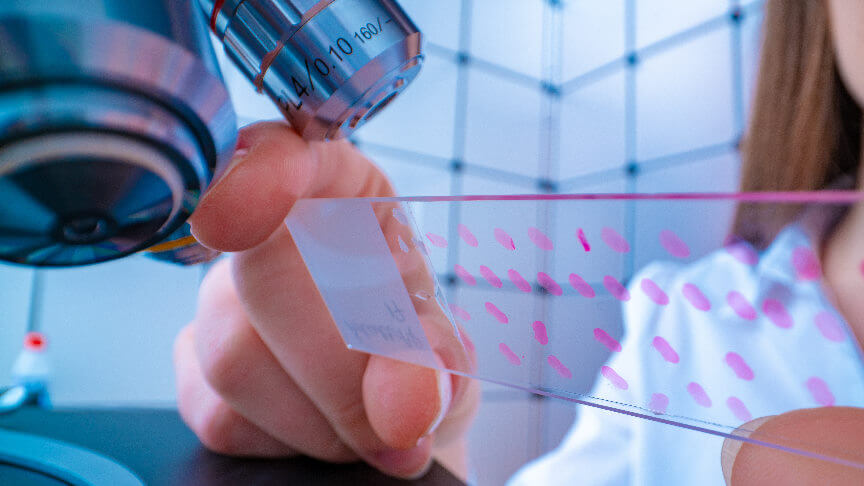What Are Common Targeted Therapies Used in Breast Cancer
There are many targeted therapies used in breast cancer that depend on the specific mutations present in the patient. Targeted therapies locate and attack specific abnormalities or characteristics within the DNA of cancerous cells. These therapies can be administered through an IV or taken orally so they can work throughout the body. This is advantageous for patients with metastatic cases because some treatments can only be used for localized disease. Targeted therapies also avoid healthy cells, which in some cases, leads to less significant symptoms and side effects.
To identify which mutations are present in a cancer patient, a form of genetic testing needs to be performed. A biopsy will be taken of the patient’s tumor, then sent to a laboratory to analyze the results. They will detect any abnormalities within the DNA of the cancerous cells, like excess proteins. If the results come back that you do have a gene mutation, you may be eligible for a targeted therapy.
Targeted Therapies Used in Breast Cancer
The targeted therapy drug used for breast cancer patients depends on the extent of their disease, whether or not it has metastasized, and which gene mutation is present. The following drugs are used in the different types of breast cancer.
Targeted therapies for metastatic HER2-positive cancer:
- Trastuzumab (Herceptin)
- Pertuzumab (Perjeta)
- Ado-trastuzumab emtansine (Kadcyla)
- Neratinib (Nerlynx)
- Margetuximab-cmkb (Margenza)
- Lapatinib (Tykerb)
Targeted therapies for HER2-negative breast cancer:
- Palbociclib (Ibrance)
- Ribociclib (Kisqali)
- Abemaciclib (Verzenio)
- Everolimus (Afinitor, Zortress).
- Alpelisib (Piqray)
Targeted therapy for triple negative breast cancer:
- Sacituzumab govitecan-hziy (Trodelvy)
Targeted therapies for the BRCA1 or BRCA2 mutations:
- Talazoparib (Talzenna)
- Olaparib (Lynparza)
The side effects for targeted therapies can vary for each patient and depends on the specific drug used for treatment. Some patients will experience mild symptoms while others have more serious side effects. Some common side effects are shortness of breath, leg swelling, and fatigue. Some more serious side effects include heart damage, liver problems, and severe diarrhea. Speak with your doctor if you are interested in learning more about targeted therapies to see if you are eligible.
Gene Mutations in Breast Cancer
The most common genetic mutation for breast cancer is BRCA1 and BRCA2, which are hereditary. Either one is found in roughly 20 percent of all breast cancer cases. Other common mutations found in breast cancer include:
- ATM
- FGFR
- HER2
- PIK3CA
- TP53
- PTEN
- CHEK2
- STK11
- PALB2
There are many other mutations that can be found in breast cancer and other cancer types. Genes are responsible for different functions of cells and testing positive for a mutation can reveal more about your prognosis and what drives the growth of the tumor. Your doctor also might be able to tell which treatment options you will be resistant to, or more responsive to. Targeted therapies for breast cancer patients are also available in clinical trials for patients to enroll in. The eligibility criteria can be specific and is different for each trial, so talk with your doctor to see if clinical trials could benefit your case.
Sources:
https://www.cancer.org/targeted-therapy-for-breast-cancer
https://www.cancer.net/breast-cancer-metastatic/types-treatment


0 Comments